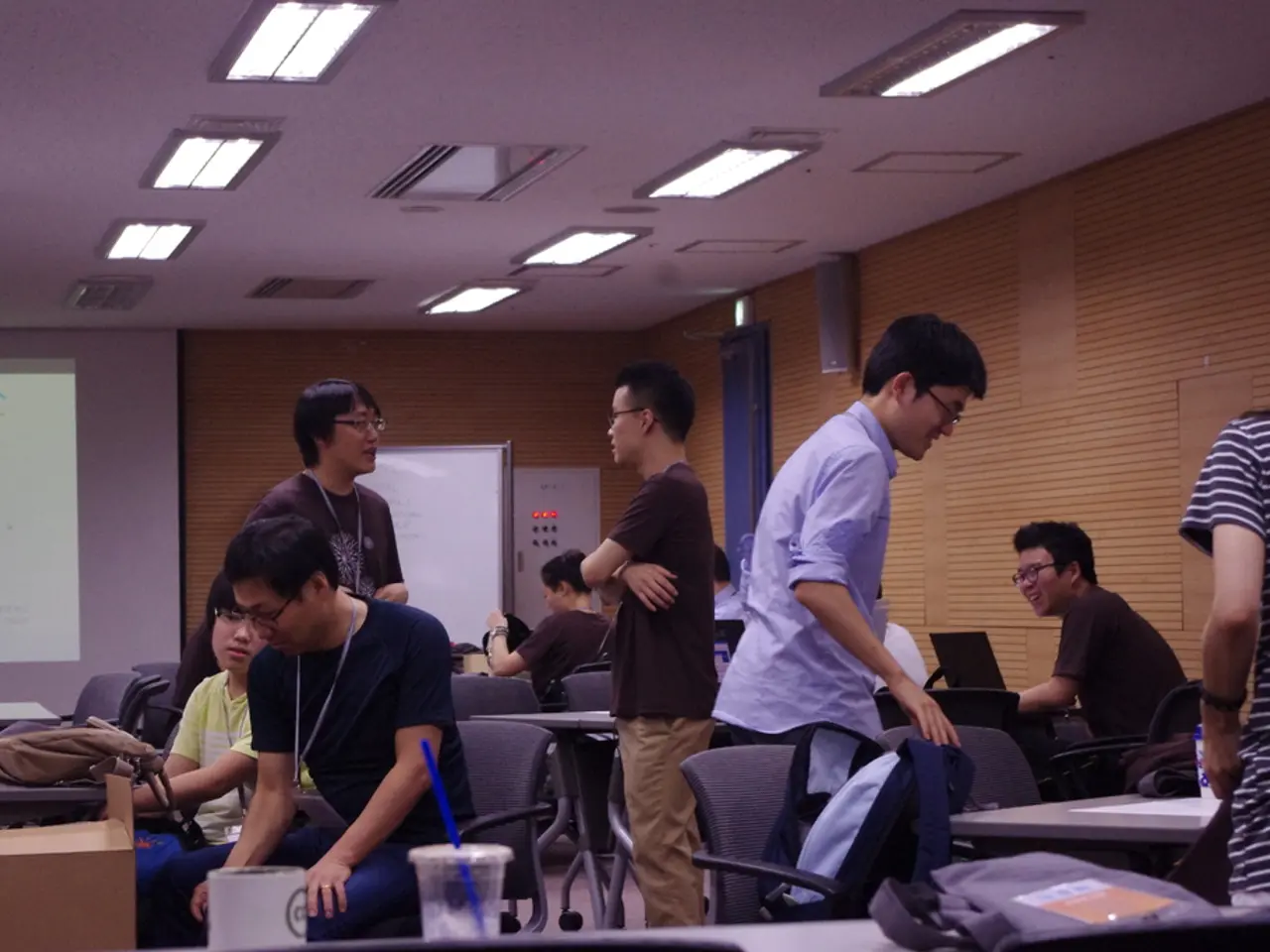Education in Developing Nations: Closing the Knowledge Divide
In the rapidly evolving landscape of education, e-learning platforms are revolutionising the educational sphere in developing countries. Prominent names like Khan Academy, Coursera, Microsoft Teams for Education, and Edmodo are leading this charge, offering innovative solutions to the challenges faced by these regions.
Blended learning, mobile learning technologies, and gamification are emerging teaching approaches within e-learning, aiming to cater to diverse learning needs and encourage student engagement. However, the path to widespread adoption is not without hurdles. Limited access to reliable internet connectivity, insufficient digital literacy, economic factors, and cultural attitudes can act as barriers to e-learning adoption.
Addressing these geographic and socio-economic barriers is where e-learning platforms prove critical. Artificial intelligence and machine learning are contributing to advancements in e-learning by analysing student performance data, providing personalised learning experiences, and identifying areas for improvement.
Non-Governmental Organizations (NGOs) play a pivotal role in advancing e-learning in developing countries. They provide resources, training, and innovative solutions to bridge the educational divide, often collaborating with governments to tailor e-learning platforms to local needs. Cultural considerations significantly influence the development of e-learning, including the use of local languages and community involvement.
The COVID-19 pandemic has accelerated the adoption of e-learning in developing countries, necessitating a swift transition to remote learning. Collaborative approaches involving government, private sector, and civil society are necessary to capitalise on e-learning's potential fully. E-learning in developing countries is a transformative shift in education, utilising technology to bridge educational gaps and make quality education more accessible to diverse populations.
E-learning platforms cater to diverse learning needs, accommodating different learning styles, and encouraging student engagement. They offer promising avenues to bridge educational gaps, providing access to high-quality learning materials, collaborative tools, and flexible learning schedules.
However, e-learning faces several hurdles, including inadequate infrastructure, limited internet connectivity, and varying levels of digital literacy. To overcome these challenges, governments and NGOs are exploring various funding and partnership opportunities.
For instance, the Clinton Health Access Initiative (CHAI) in Cameroon is developing an e-learning platform for healthcare workers in partnership with the Cameroonian Ministry of Health. International organizations like the International Monetary Fund (IMF) offer free online learning programs targeting government officials, serving as complementary or prerequisite training to in-person courses.
Blended finance platforms such as Convergence provide support to blended finance practitioners, offering design grants, acceleration support, and market intelligence. These help unlock commercial investment for sustainable development projects, including education and digital learning platforms in emerging markets.
Lastly, global funds like Education Cannot Wait (ECW) focus on education in emergencies and protracted crises in developing countries, supporting and protecting holistic learning outcomes. Such funds may provide grants and partnerships to deploy e-learning platforms that ensure education continuity during crises, an important consideration for developing contexts.
In summary, governments and NGOs in developing countries looking for funding and partnerships to support e-learning platforms can explore collaboration with local and international NGOs experienced in health or education sector digital transformation, utilising free government-tailored e-learning programs offered by international institutions, engaging with blended finance networks, and applying for grants or funding from global education funds targeting emergencies and complex crises.
The future of e-learning in developing countries promises advancements in technology and pedagogy, increased internet connectivity, and lifelong learning opportunities. Governments are partnering with technology companies to provide low-cost internet access in rural areas, investing in digital infrastructure, and integrating digital tools into the curriculum. The pandemic has sparked discussions about enhancing pedagogical approaches within e-learning frameworks, and the future of e-learning in developing countries is one of innovation and inclusivity.
E-learning platforms provide personalised learning experiences through artificial intelligence and machine learning, catering to diverse learning needs and lifestyles. To address challenges in remote learning like limited internet connectivity and digital literacy, various funding and partnership opportunities are being explored by governments and NGOs. For instance, international organizations offer free online learning programs, while blended finance platforms support sustainable development projects, including education and digital learning platforms. The future of e-learning in developing countries is one of technological advancements, increased internet connectivity, and lifelong learning opportunities, with governments partnering with technology companies to provide affordable internet access.




